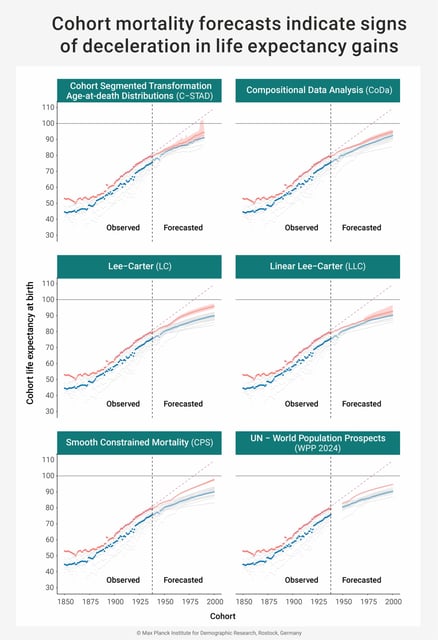Overview
- A peer-reviewed analysis of 23 wealthy nations using Human Mortality Database records and six forecasting methods finds cohort longevity gains for those born 1939–2000 are decelerating.
- The pace of improvement is roughly 37%–52% slower than the 1900–1938 trend, with best-practice gains now about 0.22–0.29 years per cohort instead of 0.46.
- No birth cohort from 1939 to 2000 is projected to average 100 years of age.
- Age decomposition shows over half of the slowdown stems from ages 0–5 and more than two-thirds from under‑20 mortality, reflecting shifts already observed rather than speculative future changes.
- Stress tests doubling future adult survival and accuracy checks support the finding, though forecasts remain probabilistic, and the authors urge recalibration of pension and health system planning.



